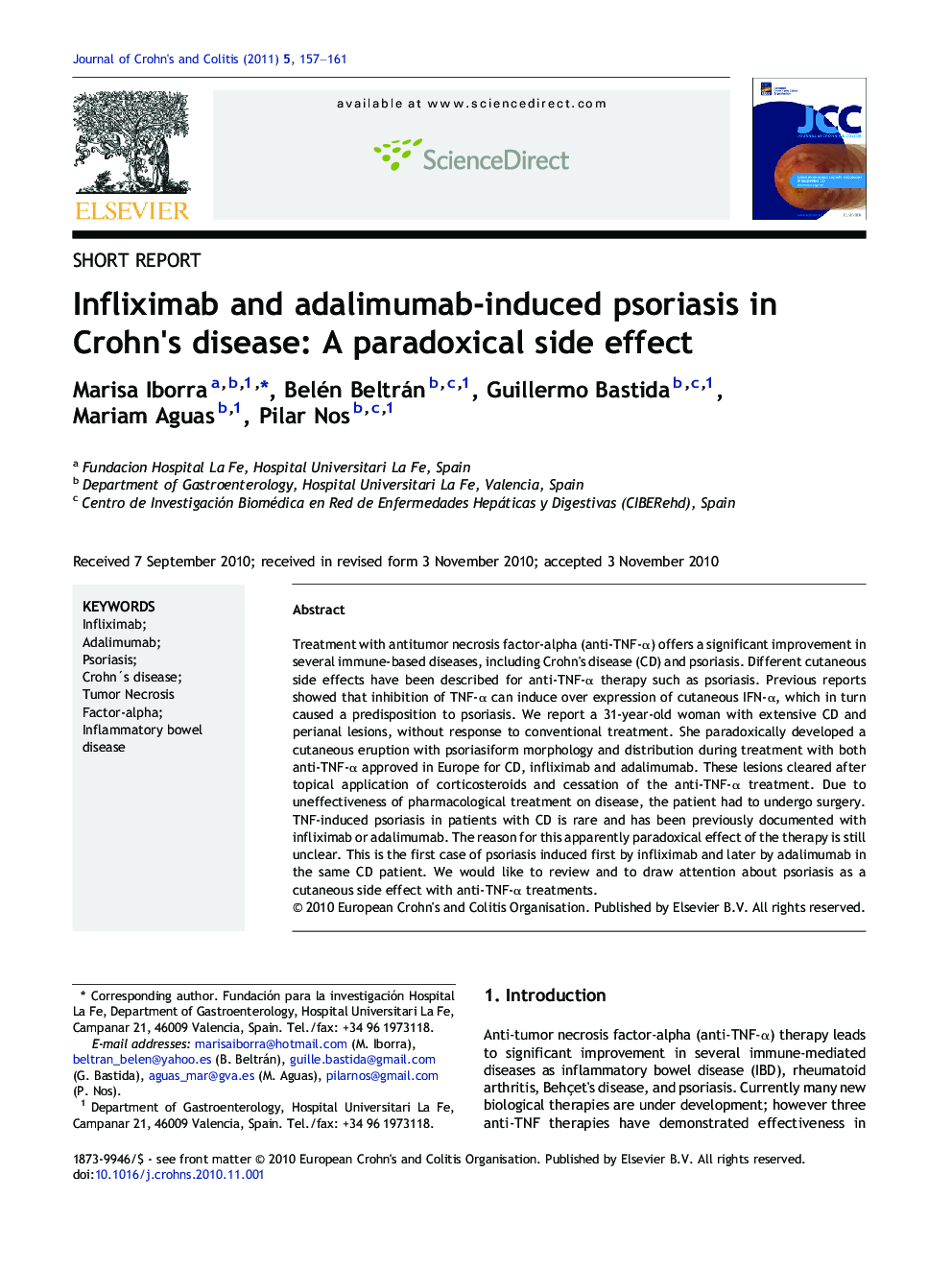| Article ID | Journal | Published Year | Pages | File Type |
|---|---|---|---|---|
| 6100146 | Journal of Crohn's and Colitis | 2011 | 5 Pages |
Abstract
Treatment with antitumor necrosis factor-alpha (anti-TNF-α) offers a significant improvement in several immune-based diseases, including Crohn's disease (CD) and psoriasis. Different cutaneous side effects have been described for anti-TNF-α therapy such as psoriasis. Previous reports showed that inhibition of TNF-α can induce over expression of cutaneous IFN-α, which in turn caused a predisposition to psoriasis. We report a 31-year-old woman with extensive CD and perianal lesions, without response to conventional treatment. She paradoxically developed a cutaneous eruption with psoriasiform morphology and distribution during treatment with both anti-TNF-α approved in Europe for CD, infliximab and adalimumab. These lesions cleared after topical application of corticosteroids and cessation of the anti-TNF-α treatment. Due to uneffectiveness of pharmacological treatment on disease, the patient had to undergo surgery. TNF-induced psoriasis in patients with CD is rare and has been previously documented with infliximab or adalimumab. The reason for this apparently paradoxical effect of the therapy is still unclear. This is the first case of psoriasis induced first by infliximab and later by adalimumab in the same CD patient. We would like to review and to draw attention about psoriasis as a cutaneous side effect with anti-TNF-α treatments.
Related Topics
Health Sciences
Medicine and Dentistry
Gastroenterology
Authors
Marisa Iborra, Belén Beltrán, Guillermo Bastida, Mariam Aguas, Pilar Nos,
